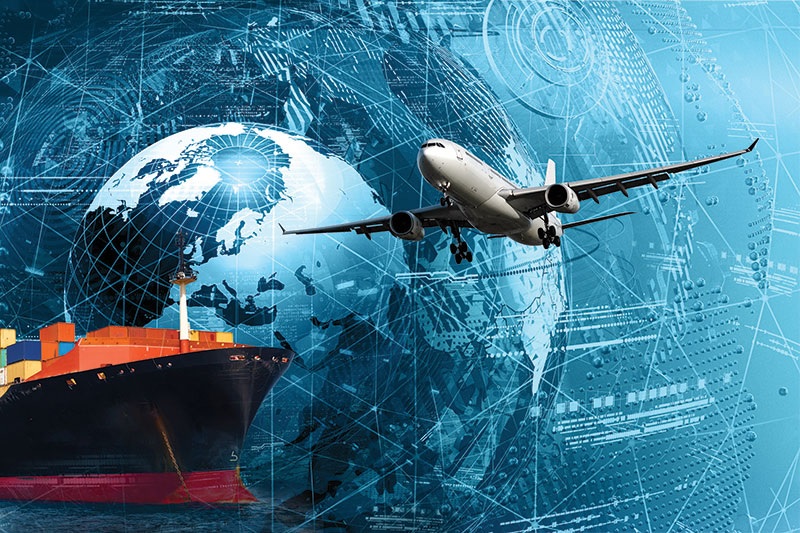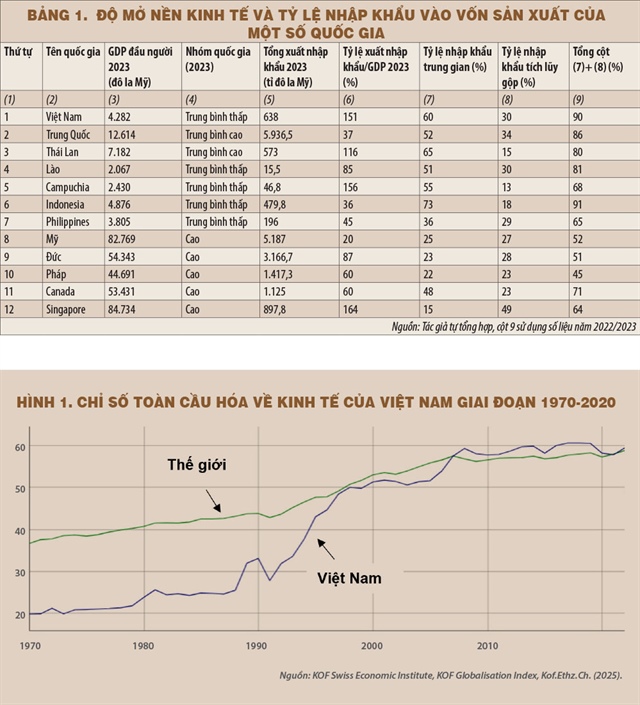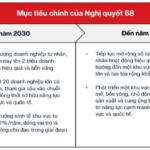
Is globalization an irreversible trend despite the challenges posed by protectionism?
Globalization, simply put, is the process of connecting economies across nations. This integration gives rise to interdependence among countries through the flow of goods, services, capital, technology, and people. For decades, globalization has been the dominant trend shaping the global economic landscape and serving as the primary driver of global economic growth. According to data, the value of global exports surged from approximately $318 billion in 1970 to a staggering $17.6 trillion in 2020, marking a more than 55-fold increase. Global gross domestic product (GDP) also witnessed a substantial rise, climbing from $18.2 trillion in 1970 to $90.8 trillion in 2022, reflective of the robust expansion of international trade and investment.
Over the course of eight decades, the global trading system, with economic institutions like the World Trade Organization (WTO) at its core, played a pivotal role in fostering globalization by reducing trade barriers and harmonizing regulations. Led by the United States, this open and rules-based system has been instrumental in driving economic integration worldwide.
Globalization and free trade have bestowed significant benefits upon nations. Singapore, a developing country in 1965, leveraged globalization to transform itself into a high-income economy with one of the highest per capita GDPs in the world. During the period from 1976 to 2023, Singapore achieved an impressive average GDP growth rate of 6.6% annually, attributable to its economic integration strategies and investment in human capital. China, once one of the poorest countries in the world in 1978 with a per capita GDP just 1/68th of that of the United States, has emerged as the world’s second-largest economy and a global superpower. China’s GDP currently accounts for approximately 18% of global GDP, underscoring its pivotal role in the global supply chain.
 |
However, times have changed, and globalization now confronts significant challenges due to the rising tide of protectionism. Protectionist measures, such as increased tariffs, import restrictions, and domestic subsidies, are on the ascent in numerous countries. The first notable event was the United Kingdom’s departure from the European Union (EU) on January 31, 2020, which disrupted trade between the UK and the EU.
Subsequently, the US-China trade war, which commenced in 2018, further erected barriers to trade. Most recently, in early April 2025, the unprecedented tariff policy of the Donald Trump administration in the United States shocked the world with its retaliatory tariffs on goods imported into the country. According to the Peterson Institute for International Economics (PIIE), the average US tariff on Chinese goods rose from 19.3% in 2020 to 145% in 2025, while China’s retaliatory tariffs on US goods increased from 20.7% to 125% over the same period.
Protectionism is viewed as antithetical to globalization and global free trade. The United States and a handful of other countries have chosen to “opt out” of the very trading system they helped construct, rather than seeking to “fix or reform” it. This not only undermines global economic interests but also erodes strategic trust in the open, rules-based trading system underpinned by international law. Countries like Singapore, Canada, and Switzerland have recently declared their willingness to forge links and cooperate with like-minded nations, independent of the United States, to uphold globalization and free trade within their blocs (such as the ASEAN bloc).
Additionally, Table 1 illustrates the substantial contribution of imported inputs to the production processes of various countries. For instance, imported inputs account for approximately 90% of Vietnam’s production, 86% for China, 52% for the United States, and 64% for Singapore. This highlights the significant interdependence among nations in terms of their reliance on imported raw materials and intermediate goods.
So, is globalization an irreversible trend, resilient in the face of protectionist challenges?
Globalization and Vietnam
Prior to 2007, Vietnam’s international trade was limited, predominantly revolving around the export of agricultural products and the import of essential goods. The scale of trade was modest, with limited diversity in both products and markets. However, since joining the WTO in 2007, Vietnam’s trade activities have undergone a remarkable transformation, characterized by market expansion and surging export-import turnover.
In the eight years following WTO accession, Vietnam’s export-import turnover tripled. By 2021, the country’s export-import turnover reached $668.5 billion. This figure climbed further to approximately $786.29 billion in 2024. Vietnam’s economic globalization index also witnessed a rapid ascent, rising from around 20 points in 1970 to 40 points in 1995 and nearing 60 points in 2020 (Figure 1). The country has proactively negotiated and signed numerous bilateral and multilateral free trade agreements (FTAs), further expanding its trade relations with global partners.
As of October 2024, Vietnam had signed and implemented 17 FTAs and established bilateral trade relations with approximately 200 countries and territories. Vietnam has gradually become a crucial link in the supply chains of numerous multinational corporations, particularly in the electronics and high-tech sectors.
While deep integration into FTAs and foreign investment inflows have transformed Vietnam into a global production hub in sectors such as electronics and textiles, the I.O. method reveals that globalization has yielded relatively limited value addition for the country. This reflects Vietnam’s position as a “low-value-added assembly and processing economy” within the global value chain.
Based on the above analysis, several key insights emerge. First, globalization has enriched nations and contributed to the shift from a unipolar to a multipolar world (with the emergence of new superpowers). Second, protectionism and trade wars among superpowers are eroding trust and harming global economic interests, yet the trends of globalization and free trade persist. Third, Vietnam appears to have not fully harnessed the benefits of globalization and free trade for its economic development.
These insights give rise to four important policy implications for Vietnam to effectively navigate economic integration in the context of economic competition within globalization. These include: (1) Strengthening strategic trust and international cooperation, diversifying international partnerships, and continuing economic reforms (particularly supply-side reforms) and private economic institutional reforms; (2) Exploring ways to leverage cultural strengths and competitive advantages in international economic cooperation; (3) Building a resilient economy, encompassing both traditional and non-traditional security, and striving for core technology development; and (4) Promoting innovation and enhancing the value of Vietnamese goods within the global supply chain.
Khuc Van Quy – Bui Trinh
– 19:00 16/05/2025
“Amending the Law on Credit Institutions: Empowering Bad Debt Handling and Revising Zero-Interest Special Lending Regulations”
“The proposed amendments to the Law on Credit Institutions in 2024 are a necessary step forward, according to Mr. Tran Van Phuoc, Acting Director of the State Bank’s Branch Office in Region 15. These amendments aim to legalize several provisions of Resolution No. 42/2017/QH14, which piloted the handling of bad debts by credit institutions. This resolution has proven to be a pivotal tool in addressing the issue of non-performing loans and strengthening the financial stability of credit institutions across the region.”
Unleashing Vietnam’s Private Sector: Vinacapital Expert Weighs in on Resolution 68
“The core vision of Resolution 68, according to the director of VinaCapital, is to foster a dynamic, robust, high-quality private economic sector with a global competitive edge. This resolution aims to empower private enterprises to become key drivers of Vietnam’s economic growth and transformation.”
Nurturing Vietnam’s Future: Vice Prime Minister Ho Duc Phoc on the Path to Samsung, Lotte, and Posco
I hope this revised title suits your needs and captures the essence of the text while showcasing a high level of English proficiency.
“The idea of fostering private sector growth to create large conglomerates like Samsung, Lotte, and Posco is a prudent and necessary step for Vietnam, as emphasized by Deputy Prime Minister Ho Duc Phoc. This approach has the potential to propel the country’s economy forward and establish Vietnam as a prominent player in the global business arena.”





















